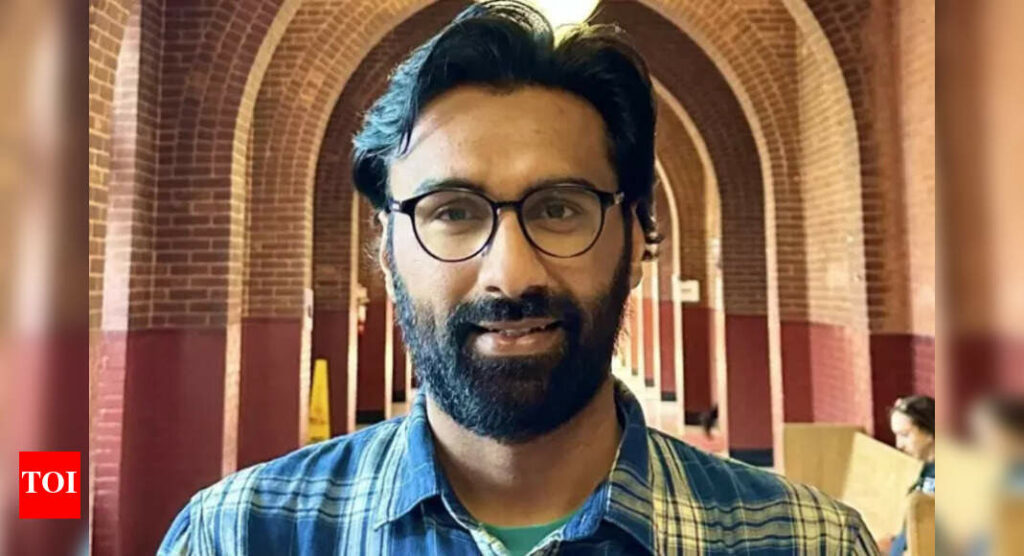A federal judge on Wednesday ordered that a Georgetown scholar from India be released from immigration detention after he was detained in the Trump administration’s crackdown on foreign college students. Badar Khan Suri, who is being held in Texas, will go home to his family in Virginia while he awaits the outcome of his petition against the Trump administration for wrongful arrest and detention in violation of the First Amendment and other constitutional rights. He’s also facing deportation proceedings in an immigration court in Texas. Before ordering his release, district judge Patricia Tolliver Giles in Alexandria said she was releasing him because she felt Suri had substantial constitutional claims against the Trump administration. She also considered the needs of his family and said she didn’t believe he was a danger to the community. The Trump govt had said his visa was revoked because of his online posts and his wife’s connection to Gaza as a Palestinian American. They accused him of supporting Hamas. Mapheze Saleh, Suri’s wife, is the daughter of Ahmed Yousef, a former adviser to Ismail Haniyeh, the Hamas member whom Israel assassinated last year in Iran. “Speech regarding the conflict there and opposing Israel’s military campaign is likely protected political speech,” Giles said. “And thus he was likely engaging in protected speech.” She added: “The First Amendment does not distinguish between citizens and noncitizens” Suri was arrested by masked, plain-clothed officers on the evening of March 17 outside his apartment complex in Virginia. By the time a petition had been filed to keep his case in Virginia, authorities had put him on a plane to Louisiana without allowing him to update his family or lawyer, Suri’s attorneys said. A few days later, he was moved again to Texas. Before Wednesday’s hearing, US attorneys argued that Suri’s case should be moved from Virginia to Texas because the petition was filed after the scholar had already left the state. They said filing his case in Texas is a “relatively straightforward application of wellsettled law”. Giles agreed with Suri’s attorneys from American Civil Liberties Union, who argued that it had appeared the real reason he was moved to Texas was to bring the case before a more conservative court. Khan Suricame to the US in 2022 through a J-1 visa, working at Georgetown as a visiting scholar and postdoctoral fellow. He has three children: a 9-yearold son and 5-year-old twins. Before his arrest, he taught a course on majority and minority human rights in South Asia. Court filings said he hoped to become a professor and embark on a career in academia. Judge indicted for ‘shielding migrant’A federal grand jury indicted a Wisconsin judge on charges she helped a man in the country illegally evade US immigration authorities looking to arrest him as he appeared before her in a local domestic abuse case. Milwaukee county circuit judge Hannah Dugan’s arrest and ensuing indictment has escalated a clash between Trump govt and local authorities over the Republican president’s sweeping immigration crackdown.Dugan faces up to six years in prison if convicted. Her team of defence attorneys said that she maintains her innocence and looks forward to being vindicated in court. Dugan is scheduled to enter a plea on Thursday.Judge backs wartime law for deportationA federal judge on Tuesday opened a path for Trump govt to move forward with deporting a Venezuelan man under Alien Enemies Act, a wartime law, but ruled it must first give him notice in his native language, 21 days to object and an “opportunity to be heard” in court. The ruling, by judge Stephanie L Haines from the western district of Pennsylvania, could provide a legal opening for govt to restart deportations under the Act of Venezuelans whom it considers members of Tren de Aragua, a gang that the White House has designated as a terrorist organisation.The American Civil Liberties Unionsaid it would appeal Haines’ decision.(With inputs from NYT)







